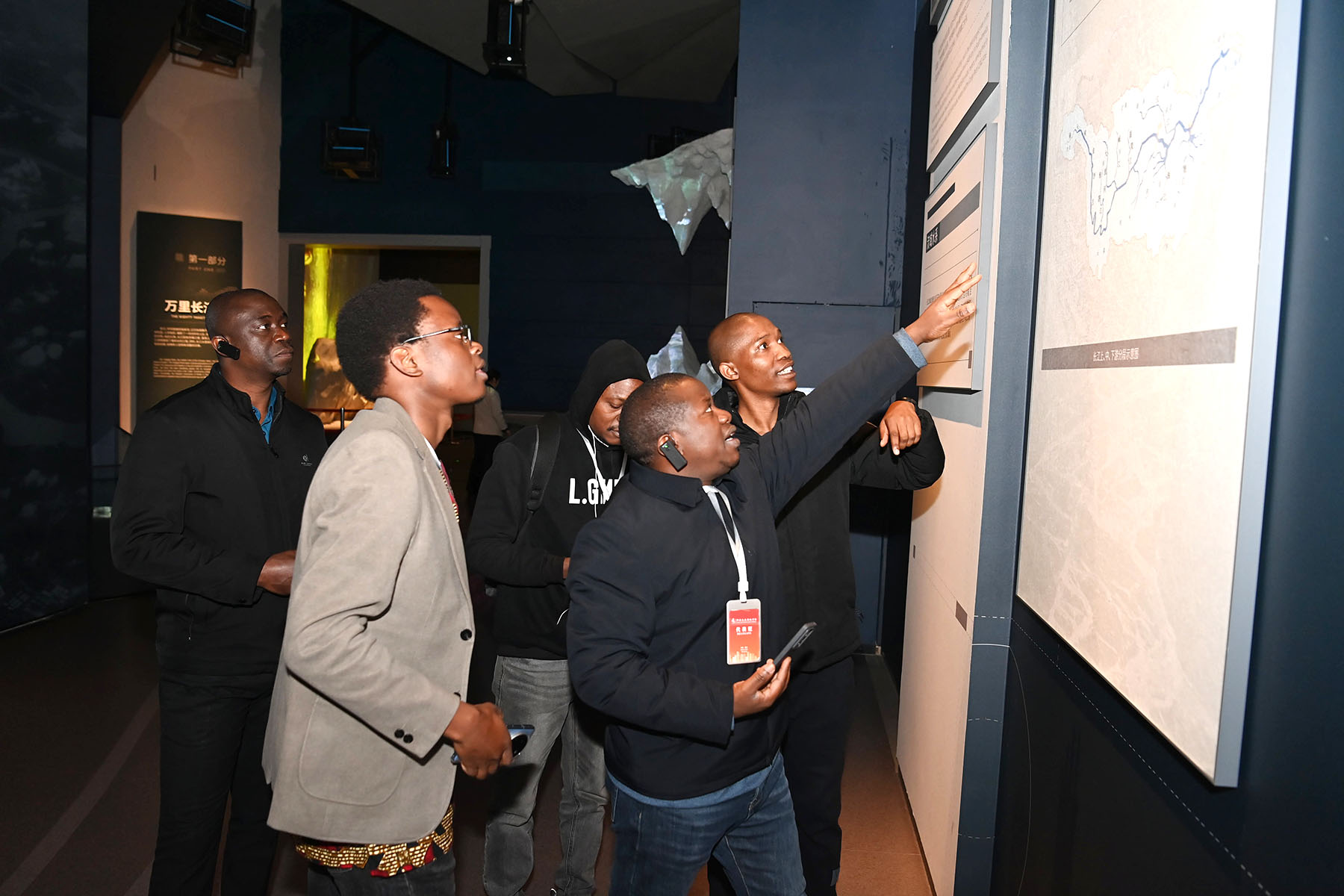Dialogue brings together youth leaders from China and Africa to explore modernization, foster cultural exchange, and strengthen bilateral cooperation.

Phelendaba Pearl Chunga, a 32-year-old diplomat at the Zambian Embassy in Beijing, was amazed by the stunning landscapes, rich culture, and well-preserved history during her first visit to Hubei province, where the fourth China-Africa Future Leaders' Dialogue was held.
From Dec 7 to 11, organized by the Chinese People's Association for Friendship with Foreign Countries, the event brought together Chinese and African youth leaders in Hubei under the theme "Joining Hands to Advance Modernization".
It aimed to foster cultural exchange, mutual understanding, and win-win cooperation while deepening discussions on modernization.
READ MORE: Learning advantage
The five-day journey began in Yichang, located at the boundary between the upper and middle reaches of the Yangtze River, where the delegation observed how China has balanced economic development with environmental sustainability through the world's largest water control and hydroelectric project, the Three Gorges Dam.
Lamek Aluvilu Nauta, a 38-year-old Namibian student at the Shanghai National Accounting Institute, was impressed by how the dam effectively leverages the region's large water flow and steep terrain to achieve multiple functions.
He learned that the dam separates two water reservoirs at different elevations. When its gate opens, water flows from the higher reservoir to the lower by the force of gravity, converting hydro-energy into electricity through turbines that supply 10 percent of the country's electricity consumption.
Chunga shared a similar sentiment. "The dam stands as a symbol of technological innovation, renewable energy, and flood control, while also boosting local industries, tourism, and transportation," she said. "This offers valuable lessons for Africa on achieving sustainable economic progress through responsible resource management."
In addition to harnessing its natural resources for economic growth, Hubei is also nurturing emerging industries with a focus on high-tech advancements.
For example, Voyah, a leading Chinese brand in the new energy vehicle sector, integrates cutting-edge technology to promote green and low-carbon development.
Victor Alfonso Obiang Ondo Ayetebe, a 28-year-old computer science and technology student from Equatorial Guinea at Beijing Institute of Technology, was particularly impressed by the company's autonomous driving vehicles.
"The car can park itself without the help of the driver, which is amazing. I hope companies like Voyah will expand to countries in Africa, such as Equatorial Guinea, which has good bilateral relations with China," he said.
Rim Dif, 36, an Algerian graduate student at the Shanghai National Accounting Institute, was also captivated by Voyah's innovative approach to combining speed, comfort, and stability.
She discovered that its vehicles can accelerate from 0 to 100 km/h in less than four seconds — an attribute typically associated with sports cars — while ensuring safety.
"Integrating this feature into both a seven-seater minivan and an SUV model underscores the level of innovation and technology that Voyah has achieved, especially considering that all of the company's cars are either hybrid or electric," Dif said.
For Nauta, the highlight of the event was visiting the Tribe of the Three Gorges scenic area, where he was touched by the warm hospitality of the Tujia ethnic group at a joyful local wedding.
"We had the opportunity not only to witness their wedding traditions but also to be part of them. I felt like we were one big family with everyone at the wedding," said Nauta.
Chunga was also deeply moved. "Visiting the tribe made me feel connected to the local people and their customs," she said. "The use of music for storytelling reminds me of Zambian cultures, where history and traditions are also preserved through music and storytelling."
For Dif, the most significant takeaway was how exchange activities like this help young people understand each other's visions and see the world from different perspectives.
"No matter how divergent our views may be, our strength and wealth rely on our differences. Hand in hand, we can achieve better and bigger results than we can on our own," she said.
ALSO READ: Chinese visitors answer Africa's call of the wild
Patrick Mushitsi, a 32-year-old Burundian PhD student in international relations at the University of International Business and Economics and president of the Association of Burundian Diaspora in China, reflected on how the trip highlighted the shared histories between China and Africa.
He noted that both regions boast ancient civilizations, rich cultural traditions, and have faced similar challenges in the past, such as poverty and inequality, which have deepened their solidarity and cooperation.
"When I return home, I will share with my peers what I have learned from China," he said. "I also intend to organize a similar event in my country and invite young Chinese leaders to experience Burundian culture to foster greater people-to-people exchange."
Deng Zhiyan, an undergraduate student from Hubei University and a volunteer at the event, spoke at the farewell gala, calling for joint efforts to advance modernization and build a better world.
"The young generation of China and Africa are the architects of our shared future. Together, I believe we will navigate the challenges and seize the opportunities that lie ahead, confident that our partnership will continue to grow stronger, lighting the path for future generations," she said.
Contact the writers at guojiatong@i21st.cn


